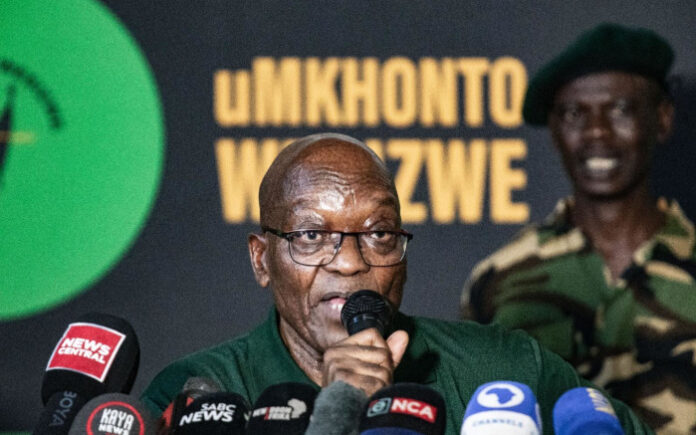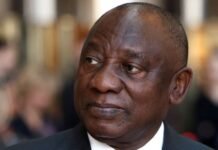Former South African president Jacob Zuma recently hinted at the possibility of becoming the presidential candidate for the newly formed uMkhonto weSizwe (MK Party), sparking optimism among his followers who believe he could once again lead the country.
However, the constitution of South Africa poses a significant hurdle to Zuma’s ambitions, as he is ineligible to serve as president again. Zuma served as the fourth democratic president of South Africa from 2009 to 2018, though he didn’t complete his terms in office.
According to Section 88 of the constitution, “No person may hold office as president for more than two terms.” While some argue that Zuma did not complete his second term as he resigned before it ended, others point to President Cyril Ramaphosa, who served as acting president during the transition.
[ OPINION: ANC Losing Electoral Support: A Closer Look At Recent Trends ]
The constitution addresses such situations, clarifying that when a person is elected to fill a vacancy in the office of president, the period between that election and the next election of a president is not regarded as a term.
Therefore, Zuma’s resignation does not exempt him from the constitutional restriction on serving more than two terms as president. Although despite these legal restrictions, a significant number of Zuma’s supporters seem unaware of this reality.
South Africans need to familiarize themselves with the Constitution and its provisions before rallying behind any political figure or slogan. The accessibility of the Constitution to the public is crucial for promoting citizen engagement and upholding the rule of law.
Jacob Zuma commands a significant following nationwide, and his potential to rally massive support for any political party he aligns with cannot be underestimated. In December 2023, he explicitly declared his intention to campaign and vote for the MK Party in the 2024 elections, while still maintaining his active membership in the ANC.
As the country prepares for the upcoming general elections, speculation surrounding the MK Party’s role is rife. Some argue that the proliferation of political parties like the MK Party is intended not necessarily to secure victory but to erode the support of the governing ANC.
However, even if the MK Party does not secure a national victory, it could still play a significant role in the political landscape.
In a worst-case scenario for the ANC, a significant drop in support could see the party securing less than 50% of the vote nationally, necessitating coalition partnerships. The ANC might turn to smaller parties for alliances to achieve the required simple majority of 50 plus one.
As the much-anticipated general election approaches, voters must be discerning and well-informed. Rather than simply voting for an individual, it is important to cast your vote in support of democracy, a stronger economy, and a stable government.
This article was submitted by one of The Times Post’s opinion contributors who prefers to remain anonymous. The views expressed in the article do not represent The Times Post’s political stance.
Catch up with the latest news from The Times Post on WhatsApp by following our channel. Click here to join.















